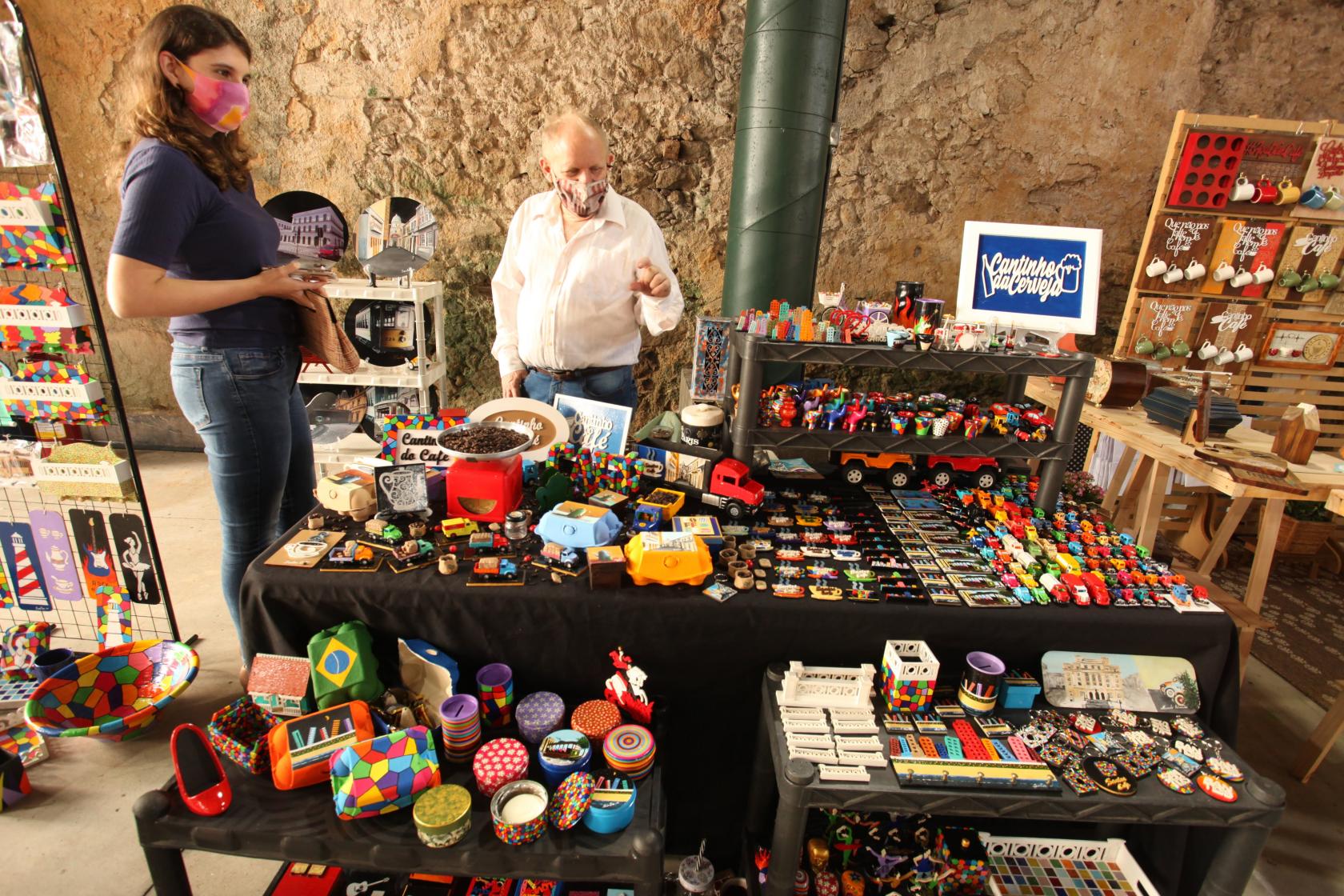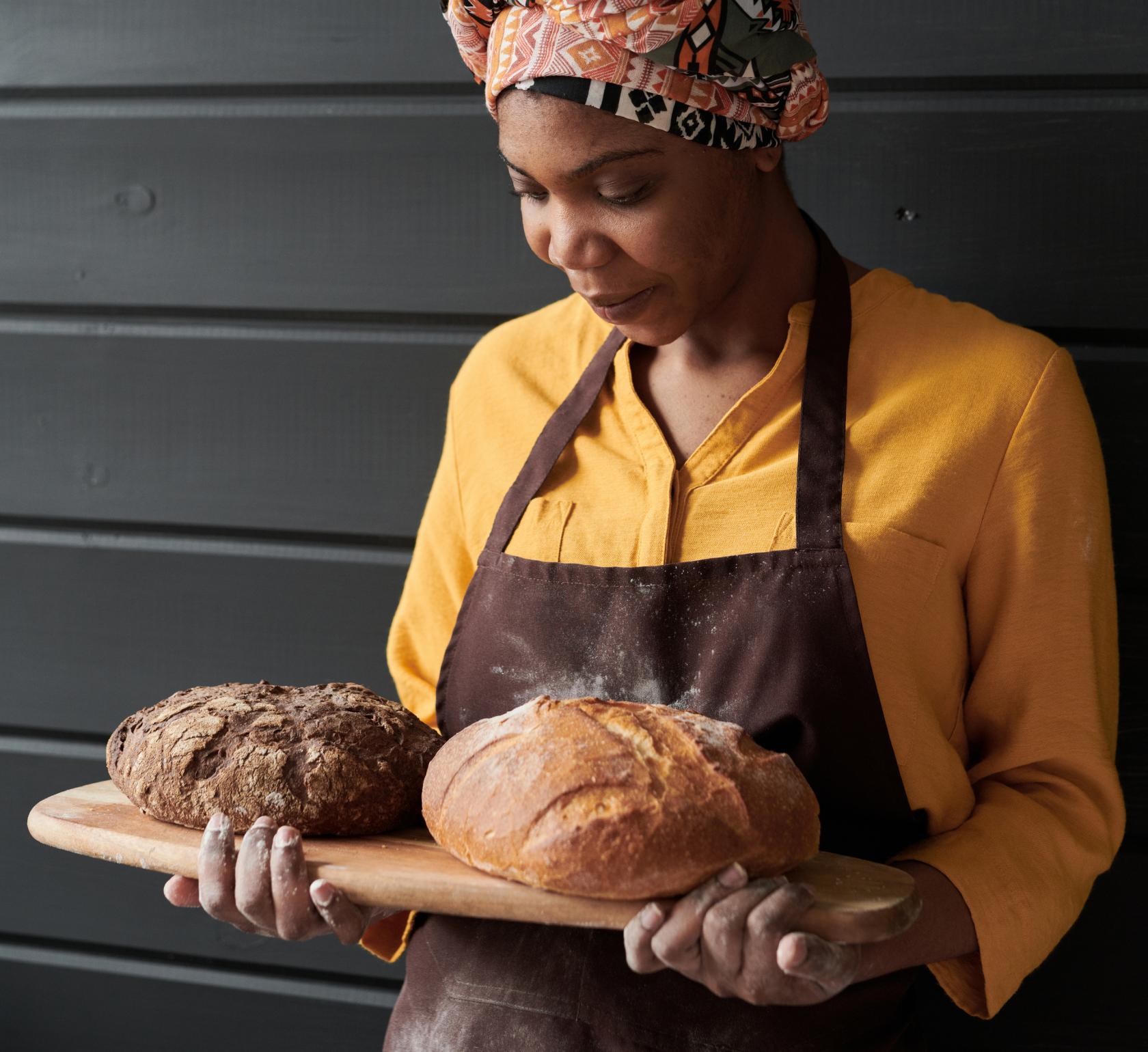Creative economy
Promoting economic and social development
City bets on the power of the creative economy as a factor of social, economic and sustainable development
Creativity is a feminine noun that comes from the Latin ‘creare’, which indicates the ability to create, produce or invent new things. However, in Santos this small word carries much more meaning and potential. The city bets on the power of the creative economy as a factor of social, economic and sustainable urban development in various sectors.
With the objective of encouraging the local and regional development of this segment, the City Hall created the Santos Criativa program and the Economic Innovation Office (EIE).
The strategy of Santos Criativa and the EIE is to encourage creative activities in their most diverse expressions and the creation and application of public policies to encourage innovation combined with creativity, with the aim of promoting economic and social development.
Creative Villages offer training in more socially vulnerable neighborhoods
The key pieces of equipment for the practical application of this strategy are the 12 creative villages scattered throughout Santos (see addresses below). Installed in the most socially vulnerable neighborhoods (lower HDI), they currently serve more than 5,000 people with professional qualifications, as well as cultural and social activities, strengthening the social, civil and political capacities of disadvantaged groups. The experience of these facilities is even highlighted in the book ‘Cities, Culture, Creativity: leveraging culture and creativity for sustainable urban development and inclusive growth’, published by UNESCO in 2021.
Last year, more than 3,200 students attended qualification courses in the creative villages, in the most diverse areas such as gastronomy (pizzaiolo, gourmet brigadeiro, Brazilian sweets, artisanal hamburgers and cupcakes), fashion and beauty (techniques of assembling jewelry, aromatherapy, eyebrow shaping and facial hair removal), sales (how to attract more customers, product photos for social media, digital marketing on social media for e-commerce, how to advertise on social media, Market place setup, customer service) and technology (programming logic and basic informatics).
This year's classes have already started and dozens of students are attending the courses, as always with free registration and carried out in partnership with renowned institutions, such as Sebrae and Senac.
Ecofactory unites training and sustainability
Installed since June 2016 inside the Municipal Market, in Vila Nova, Ecofábrica Criativa is an opportunity for training for the job market, talent development, income generation and quality of life. In the courses, coordinated by the Social Solidarity Fund (FSS), students learn to make pieces for urban furniture - signs, racks, benches and flower boxes -, in addition to decorative objects.
In classes, wood collected by Cata Treco (municipality recyclable collection) is reused. The course is divided into two modules. The first, for training apprentices, lasts for three months. The second, nine months, for professional training in woodworking. The Public Services (Seserp) and Environment (Semam) departments are also partners in the project.
In 2018, the proposal was recognized by the IF Design Award in the Social Impact category. The award is one of the most coveted by designers around the world and considered the Oscars of Design.
Restaurant-school guarantees formation and employability
Restaurante-Escola Estação Bistrô (Largo Marquês de Monte Alegre, Valongo) is the result of an exclusive partnership between the Catholic University of Santos and the City of Santos for the inclusion of young people aged between 18 and 29 in situations of personal and social vulnerability. Every day, two options of dishes are offered, prepared by the chef and prepared by the young people of the restaurant-school.
All are registered at the Social Assistance Reference Centers (Cras) and linked to the Novo Rumo Qualification Program. They receive, through the program, transportation vouchers, a minimum wage grant and life insurance.
Classes of approximately 20 students are formed per semester. Each one has a total of 60 hours/classes of training, with Master Professors and PHD from the University's Gastronomy and Nutrition courses.
During the course, students learn: basic cooking skills, current methodology for hygienic-sanitary control of food, identification of goods, fundamentals of restaurant and event services. Also: enology and beverages, confectionery and bakery foundations, culinary fundamentals in the preparation of hot and cold cuisine, socio-educational work, specific practical content, applied mathematics and instrumental English.
At the end of the program, two participants are selected who are interested in following the training course for ‘barista and tourism agent’. The first qualification is in charge of the Café Museum and the students undergo practical training. In the tourism agent course, young people receive guidance on hospitality, to welcome tourists, and carry out technical visits to all tourist spots in the City.
Also during the program, they rotate weekly in the different sectors of the restaurant. At the end of each stage, the instructors assess the individual and collective performance of the participants.
In nine years of operation, the school-restaurant has trained more than 300 young people in social risk, 40% of whom were integrated into the job market even before completing the course.

Project Made in Santos supports small creative businesses
Seeking to support small creative businesses during the period of social isolation, a consequence of the covid-19 pandemic, the City Hall started, in 2020, the project 'Made in Santos'. It works as an online counter, intermediating, free of charge, the exhibition of handcrafted products made by local entrepreneurs and artists. It is a way of encouraging and valuing regional culture through the creative economy.
Feito em Santos started this work with a page on instagram (@feito.emsantos), which currently has 800 subscribers and 11,000 followers.
In April 2022, the work expanded to the Vitrine Feito em Santos, an online tool for the free exhibition of products and services related to the creative economy, created by entrepreneurs and artists from City. In the virtual environment, along with the handicraft, visual arts, design, gastronomy and fashion products on display, internet users find the profile and contact details of entrepreneurs to be able to purchase the products they are interested in.
The portal has free registration carried out on the website itself. Interested parties apply for the exhibition of products and await analysis by the Office of Economic Innovation team.
Also recently created, the Creative Entrepreneurs Acceleration Program will train 25 small entrepreneurs in Santos in the craft and fashion sectors in business management, between June 13th and June 13th. December
Creative economy fairs become an attraction for Santos and tourists
The Feito em Santos project also includes the organization of fairs, so that small creative economy producers in Santos can sell their products. In 2021, 10 events were held, with an average of 40 small entrepreneurs in each. This year, two others have already been held, marking the reopening of Outeiro de Santa Catarina (Saint Catharine Mount) and Easter.
The City also has two permanent fairs. The Feito em Santos Valongo is mounted on the porch at Estação do Valongo, on Saturdays and Sundays from 11 am to 5 pm. There are 14 exhibitors offering sweets, handicrafts and small products such as key chains, magnets and other souvenirs from the City.
Originally called "hippie fair" or simply "feirinha", the Fair of Handcrafted Products, of Creative Varieties, of Food and Drinks and of National and International Cuisine, known as FairArte, is considered the first street fair of its kind in Brazil.
With more than 50 years of history, it has already become a tradition for tourists and Santos residents. It is assembled from 2 pm to 9 pm, on Saturdays on the edge of Boqueirão, and on Sundays, in Aparecida. There are approximately 70 stalls offering handicrafts, jewelry, clothes, shoes, bags and esoteric items, in addition to a food court.

Bakery and the lucrative beauty market
The beauty market is one of the fastest growing in the world and Brazil stands out in the sector, according to the World Consumption Ranking (organized by Abihpec/Euromonitor) the country is already the fourth largest beauty and personal care market in the world (losing for US, China and Japan only). Santos is no different, it is an expanding sector, which makes Vila Criativa da Beleza (Vila Nova), which houses the Salon-Escola Self-Esteem project, even more important.
The project has the capacity to serve up to 254 students per year at the Vila Nova Unit and 110 students at the Morros Unit (created to facilitate access for residents of the hills). The vacancies are entirely intended for people assisted in the social assistance services of the Secretary of Social Development (Seds), also responsible for the administration of this Vila.
Students have access to completely free courses in hairdressing, manicures, barbering and eyebrow shaping. On the other hand, the local population, many in social vulnerability, has free service provided by the students of the courses.
Also managed by Seds and with vacancies offered to people who are assisted by the social assistance services of the Municipality, Vila Criativa Mercado (Vila Nova), offers 160 annual vacancies for courses in industrial bakery, confectionery, Christmas products and cake leveling.
The two creative villages managed by Seds have the same function: the promotion of courses aimed at the most vulnerable parts of the City, aiming at the social and economic development of the entire population.